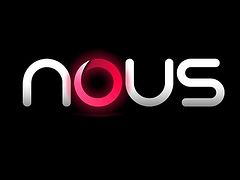Thinking is among the most misleading things in the modern world, or, to be more precise, thinking about thinking is misleading. For a culture that puts such a great emphasis on materiality, our thinking about thought is decidedly spooky. The philosophy underlying our strangely-constructed modernity is called nominalism (of which there are many formal varieties). It’s imaginary construct of the world consists of decidedly separate objects, united only by our thinking about them. There are things, and then are thoughts about things. But the thoughts have nothing to do with the things, except in our heads.
The result is the strange contradiction of living in a world we conceive of as sheer material, while only truly valuing thoughts, ideas and feelings that we conceive of as existing in our heads. I have described this in numerous articles and a book as the “two-storey universe.” We are certain of the material world, and though we only value the world of ideas and feelings, we’re not so sure that they really exist. We are indeed a troubled mind.
A much older way of experiencing the world understands our existence as one of actualcommunion. And, strangely, this way of thinking gives far more respect and attention to materiality. Nowhere is this more evident than in the contrast between ancient Christian thought and modern Christian thought.
Some examples:
Modern Christianity (which has been around for some few hundreds of years) views the death of Christ primarily in terms of the ideas associated with it. Human beings, through their breaking of God’s commandments (ideas), incurred an infinite debt (ideas), requiring their punishment (oops! This is eternal torment in hell). Note that this is purely an idea. Christ becomes man, and on the Cross suffers and pays the debt (again an idea). Those who now trust in Him (again an idea), are forgiven (another idea).
The only value placed on the Crucifixion of Christ is an abstraction. The action itself gains value only through how it is considered by God. But this abstraction ignores the deeply literal treatments referring to the blood of Christ and His flesh. The event of Christ’s suffering, death and resurrection gain their value precisely in their materiality and of God’s interaction and communion with materiality. Something happens on the Cross that is not simply in the mind of God.
Modern memorialism is the teaching that the Eucharist is simply a memorial meal, an event in which we have certain ideas about the death of Christ. But Christ says, “Take, eat!” and “Drink ye, all of this!” The “remembrance of Him” is not in our minds – it’s in our bodies and our blood. We become one flesh with Him.
It is very troubling to some when they begin to read the Church Fathers’ teachings on the heart (nous). They were well aware of the connection between brain and thinking (any number of ancient head injuries had taught them as much). But the Fathers disturbingly (for a modern) insist on locating the heart (nous) in the physical heart itself. Most moderns quickly dismiss this as some form of ancient nonsense. But it holds a very serious insight. True knowledge and communion are not abstractions. Using the example of eating, when I consume a sandwich, I could be said to “know” it. Where does this knowing occur? My stomach knows it. My blood stream knows it. In truth, the whole of me “knows” the sandwich. It is a much broader understanding of knowing than the reductionist notions of modernity.
The Whole Heart
This far more “wholistic” understanding of human existence and knowing is actually far more sophisticated than modern two-storey notions. Interestingly, modern abstractions about thought and knowing have resulted in a fragmentation of our consciousness in which we ignore the larger part of what we actually know. We have been taught to attend to ourthoughts, as though we had a disembodied existence. And to make matters worse, we have a very false, abstract notion about what thoughts themselves are.
We are material beings. We are not souls that have bodies, or bodies that have souls. The soul is the “life” of the body, but is not, strictly speaking, a thing in itself. Most moderns mistake the soul for consciousness, and they imagine that at death their consciousness migrates somewhere else (to heaven, etc). And, we do not care very much about what then happens to the body, so long as our precious consciousness abides. This, I might add, is the mythology of Star Trek, where on at least several episodes, Spock’s consciousness is deposited in various other places. It is not, however, true Christianity.
The Christian faith holds to the resurrection of the body and the soul’s proper life within that glorified body. After death, God sustains our souls (life) in existence, but this is a great mystery for which words are inadequate. It is not our proper existence nor the fullness of our being. If you ask, “But what exactly is the soul?” You will get no answer. It is the life of the body.
The thing which we call consciousness is itself problematic. Much of it is simply the noisy artifacts of various neuroses, and even the sound that the body itself makes. It is not unusual for modern Christians suffering from depression, for example, to reject medication declaring that they want a “spiritual solution.” This two-storey approach is itself a strange superstition in which we imagine that our “spiritual life” is somehow not physical.
Modern consciousness is nurtured by modern media. So long as we have the “sight” of something, it is enough. Even pornography is a strangely disembodied experience of an intensely embodied reality, something that adds to its perversity.
Orthodox liturgy, on the other hand, is pointedly sensual. It smells and tastes. It is physically exhausting. It engages the whole of our being. Of course, moderns are particularly troubled and report (as sin) that their “minds wander.” They will even declare that this makes them “not present” in the service. I was asked a while back about how “to be present.” I responded that you actually have no choice. Present is what you are. I have yet to have anyone confess as sin that one of their feet “fell asleep” during Liturgy. It’s much the same thing, only we have a strange perception that it’s different.
I tell newcomers to the Church that they should be prepared to be bored in services. It is not designed for the entertainment of the false consciousness, unlike so much else. It is an encounter with God, not an encounter with thinking or emoting about God.
The true spiritual life includes a recovery of the fullness of our being. St. Paul speaks of the “renewing of the mind” (nous) in Romans 12. Today, it not only needs renewing, but discovery. That discovery is not found in the maze of our thoughts. Rather, it is found moment by moment in paying attention to the whole self. As we withdraw from the noise of our false mind generated by the cacophony of our consumer world, we work slowly at encountering the world in true communion. Live slower. “Whatsoever you do, in thought, word and deed, do it as unto the Lord.” This does not mean ignoring your activity and “thinking about God.” It means, when you walk, walk with God. When you eat, eat with God in thanksgiving. Give your body as much credit as you’ve been giving to your mind. I strongly expect that the nature of our activities would change if this were so.
Some complain about their minds wandering when they pray. I have ADD, my “mind” always“wanders.” But I don’t worry so much about it. When I pray, I stand before the icons. If my mind wanders, I remain standing. The icons have been given to us for “communion,” and that communion is real regardless of the noise of my mind. The noise is not me; it’s noise.
Our glorification of ideas perverts our Christian understanding. Christ said, “Where your treasure is, there will your heart be also.” But we distort this and think it means, “Your treasure will be where your heart is.” We think that the thought is what matters. But Christ was quite materialist (wholistic) about the matter. Your treasure (your stuff) controls your thoughts. If you say you care about the poor, give them some of your stuff. If you don’t care about them, give them some of your stuff. If you give enough, over time you will come to care. The heart follows.
Prayer is very much like this as well. We imagine prayer to be some sort of mental force. Thus, when a matter seems desperate, we call on others to pray with us and for us, imagining that the more minds we can join in prayer, the more powerful the prayer becomes. This is simply secular nonsense. If you want powerful prayer, then do as the Fathers did, fast and give alms. Deny yourself, and give stuff away to the poor. Ask the poor who benefit from your generosity to pray for you. They will with glad hearts.
I will praise you with my whole heart. (Psalm 138:1)
You shall love the Lord your God with all your heart… (Matt. 22:37)
The heart itself is but a small vessel, yet dragons are there, and there are also lions; there are poisonous beasts and all the treasures of evil. But there too is God, the angels, the life and the kingdom, the light and the apostles, the heavenly cities and the treasuries of grace—all things are there. St. Macarius
Quit thinking so much. It’s beside the point.





